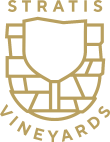Viticulture in Andros and Dionysus

Viticulture in Andros and Dionysus
The name of Andros has been preserved since antiquity and has never changed. It got its name from its first settler, Andros. He received the island as a gift from the king of Crete, Radamanthus (brother of Minos). According to mythology (by Diodorus), Andros' father was the son of Apollo and the nymph Rhoio (whose parents were the son of Dionysus, Staphylus, and the bacchant Chrysothemis).
Dionysus was a beloved god and protector of Andros. In ancient times, there was a magnificent temple dedicated to him. Every year, believers from all over Greece gathered and paid him great honors, as he offered them the precious gift of the vine, from which they made wine. This wine comforted them in their suffering and difficulties and sweetened their souls. During the seven days of the Dionysia festival, a miracle transformed the water of the temple's spring into wine.
From ancient times, Andros' strategic position in the Aegean Sea was conducive to the development of shipping and trade. Well-organized and fortified cities with luxurious temples and a strong economy developed on Andros. The oldest settlement was Strophilas, with a dominant maritime character (4500-3200 BC), and later (10th-8th century BC), the settlements of Zagora and Ipsilis.
Andros has ideal climatic and geophysical conditions for viticulture. One of its main export products was wine. On the ancient coins of the island, Dionysian depictions were almost always depicted. Coins, dated from 665 BC, show images of Dionysus in various forms and other related depictions, such as ivy, grapes, and various amphoras symbolizing the export trade of wine through different vessels.
We continue this deep-rooted tradition of viticulture on our island by cultivating our vineyards following ancient methods. In this way, we believe that we are utilizing the legacy we have and strive for its promotion.

